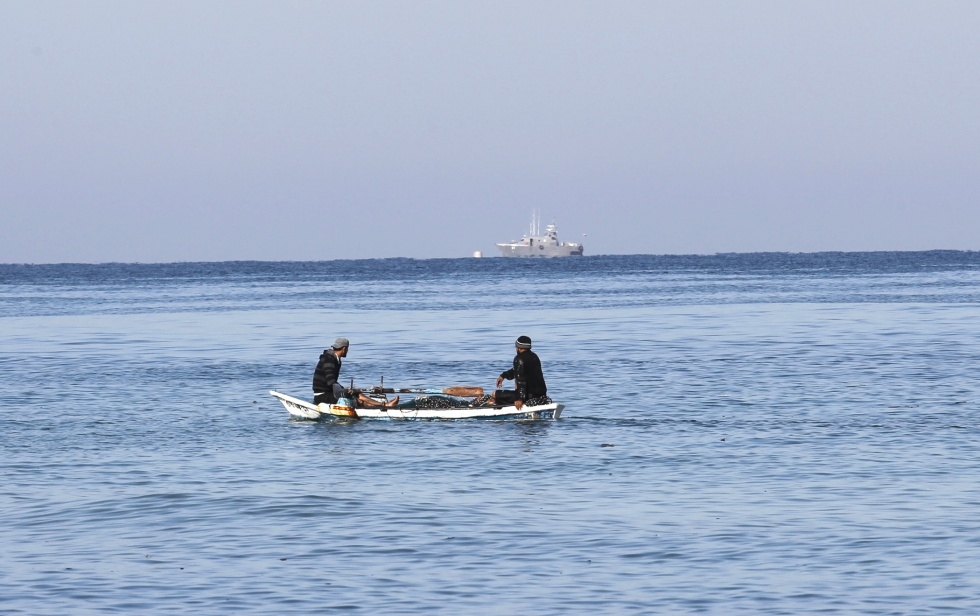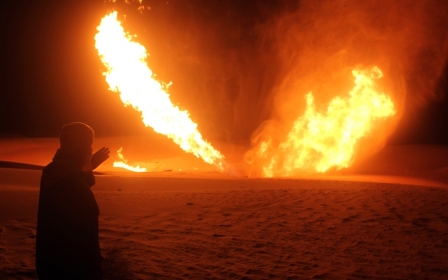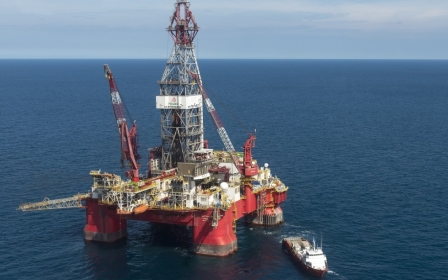Egyptian corruption and Gaza's untapped gas

LONDON – The relationship between Egyptian, Israeli and Palestinian natural gas resources is a fraught one.
Israeli gas needs were for years satisfied in large part by a sweetheart deal in which it bought very cheap gas from Egypt.
It did so at a rate far below market prices, a scandal that Al Jazeera’s investigations unit exposes in an important new documentary tonight, seen in advance by MEE.
This deal became a national scandal in Egypt, one that helped fuel the popular uprising against deposed dictator Hosni Mubarak in 2011.
Across the border in the Gaza Strip, Palestinian offshore gas reserves lie dormant. They were discovered in 1999, and former Palestinian leader Yasser Arafat described the offshore gas reserves as “a gift from God to our people”.
For years, a potential deal to sell gas from this Gaza Marine field to Israel was blocked because Israel’s Prime Minister Ariel Sharon did not want the Palestinian Authority (PA) to cash in.
But under the Mubarak regime, the corrupted Egyptian elite played a significant role in this obstruction.
The deal, under which the energy giant BG Group (under the auspices of the PA) would have extracted the gas and sold it on to Israel, was held up because Israel was refusing to pay a fair market price.
A major reason for this intransigence was its access to Egyptian gas for a pittance - $1.50 per unit, far below then-prevailing market prices of as much as $8 or even as high as $12.50 in the far-eastern market.
Why pay more when it had such cheap gas coming from right next door?
A 2009 email from the British Consulate in Jerusalem (obtained in 2012 by Palestinian academic Victor Kattan using the freedom of information law) sent to the Foreign and Commonwealth Office in London, is revealingly candid.
“Commercially, and according to BG and other energy experts, Israel isn't offering to pay the full and fair price,” the official wrote (his name was redacted).
Israel “still receives relatively cheap gas from Egypt ($1.25 per unit) but at the same time there is growing pressure inside Egypt to review that [sic] preferable prices.”
This dirt-cheap rate was indeed later revised up, but only very slightly, and still far below market rates.
The deal was seen by the Americans as a way to shore up the 1979 peace agreement between Egypt and Israel. Such moves are important to the US when the agreement still meets popular opposition in Egypt.
Many Palestinians question the logic of selling their own natural resources to the state that occupies and oppresses them.
Israel is doing all it can to erase the Green Line - the 1949 ceasefire line between Israel and the Palestinians. Its logic seems to be that if we can’t have the gas in Gaza Marine, then no one can.
Meanwhile, plenty of other gas has been discovered off the coast, and, as usual, Israel is busy creating facts on the ground – or facts under water in this case.
New MEE newsletter: Jerusalem Dispatch
Sign up to get the latest insights and analysis on Israel-Palestine, alongside Turkey Unpacked and other MEE newsletters
Middle East Eye delivers independent and unrivalled coverage and analysis of the Middle East, North Africa and beyond. To learn more about republishing this content and the associated fees, please fill out this form. More about MEE can be found here.




